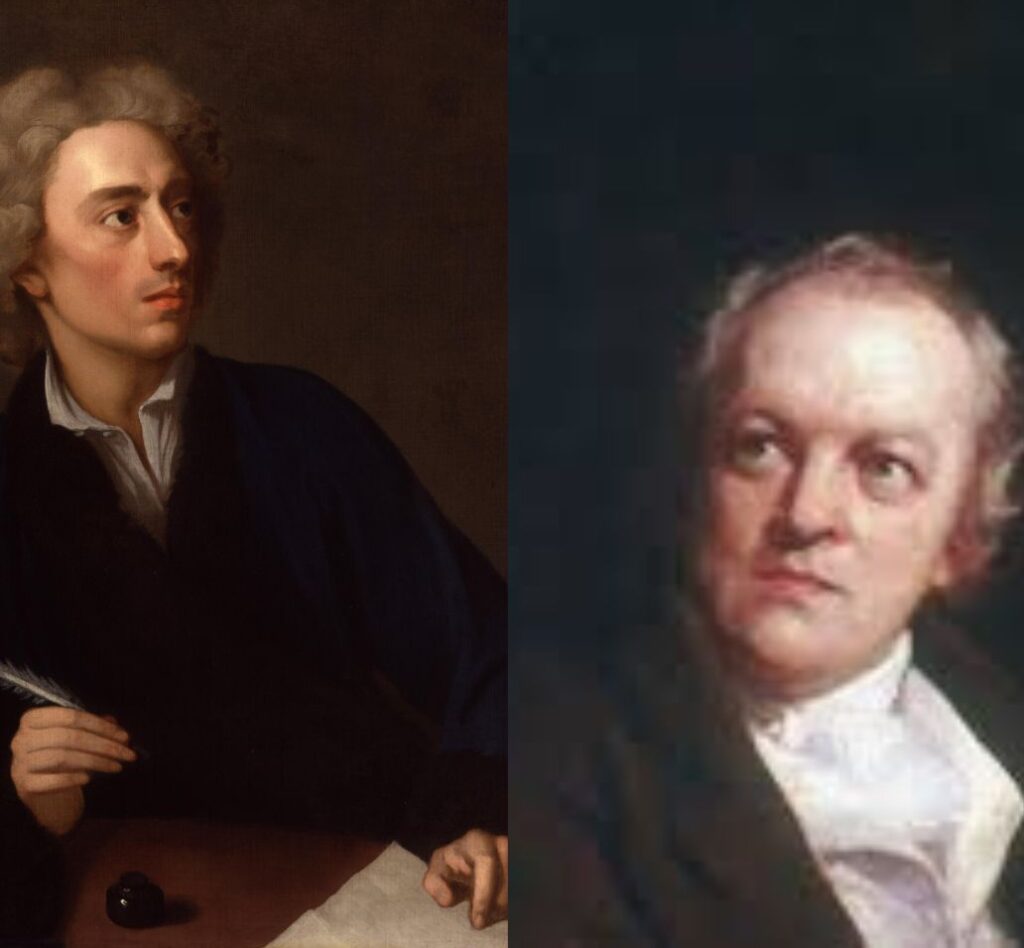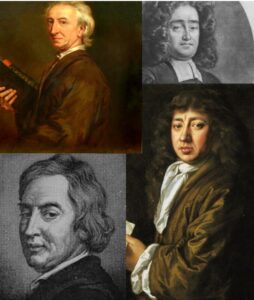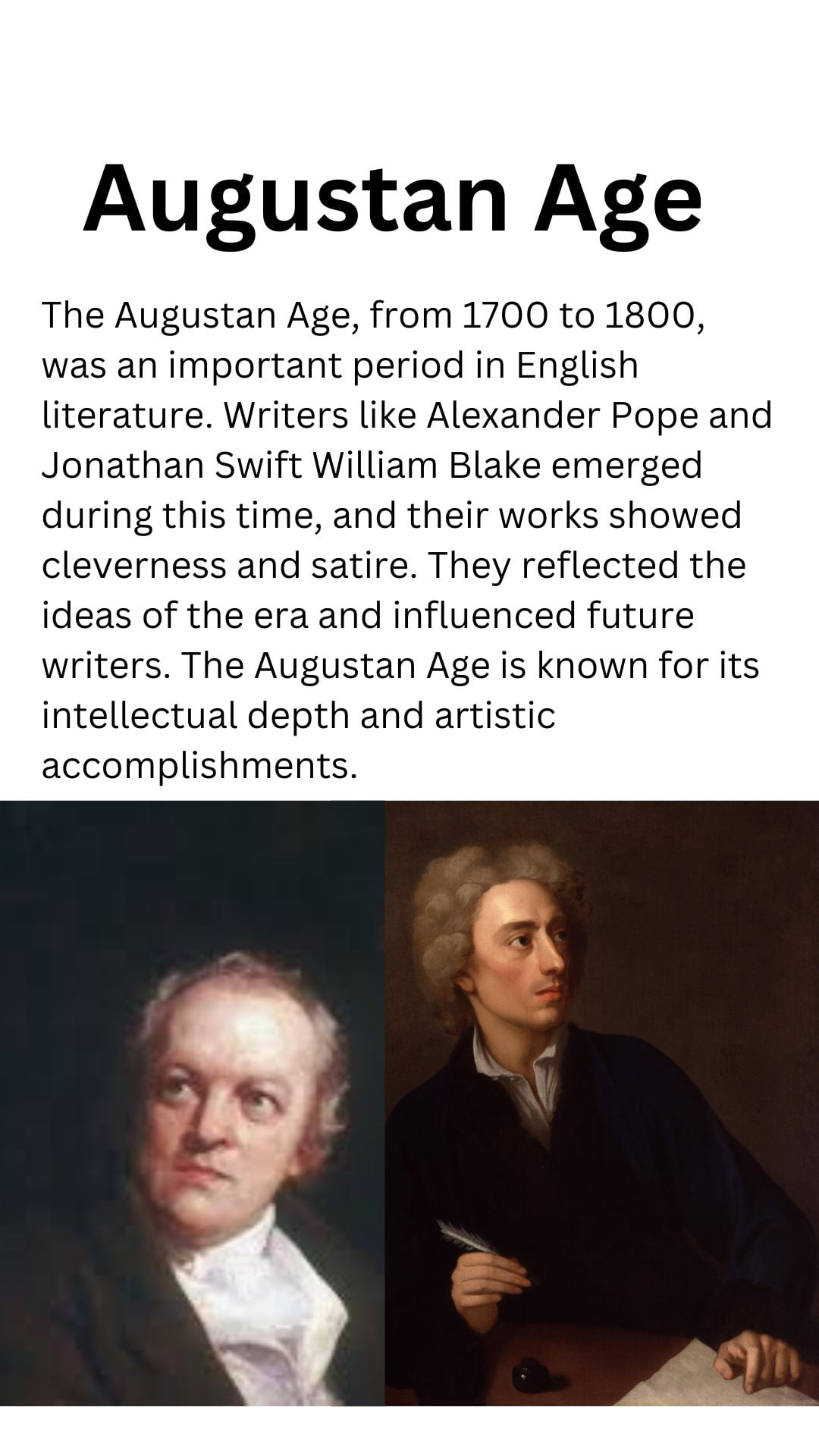The Augustan Age, sometimes referred to as the 18th Century Literature (1700–1800), is regarded as a pivotal era in the development of English literature. It was characterised by a revival of neoclassical principles that placed an emphasis on intelligence, morality, and reason. This period’s writing served as a reflection of the shifting social, political, and cultural environment. For the UGC NET English exam, it is imperative to be familiar with the writings of significant authors from this era. Numerous genres, including satire, the essay, and the novel, have benefited from the efforts of notable authors including Alexander Pope, Jonathan Swift, Samuel Johnson, and Daniel Defoe. Readers are still captivated by their literary contributions, which also offer insightful perspectives into the sociological and intellectual issues of the day.
Augustan Age/18th Century Literature (1700-1800) : Important Writers for UGC NET English
The Augustan Age, commonly referred to as the 18th century literature, was a noteworthy age of outstanding literature in England. This time period, which lasted from 1700 to 1800, saw a resurgence of neoclassical ideas and a renewed emphasis on moral virtue, wit, and intellect. The social, political, and cultural climate of the time were mirrored in the literature of this century.
Investigating the writings of significant authors who appeared during this time period is essential when preparing for the UGC NET English exam. These authors contributed significantly to the development of numerous genres and left a lasting mark on English literature.
Alexander Pope
The Augustan Age’s most well-known individual, Alexander Pope, significantly influenced English literature. Pope is renowned for his poetic brilliance, and his works show off his extraordinary talent for wit and satire. His significant writings include “The Rape of the Lock” and “An Essay on Criticism,” in which he exhibits his keen social observations and verse-writing prowess. Pope’s poetry is distinguished by its painstaking detail work, elegant language, and sharp social commentary. Alexander Pope is recognised as a key and significant character in the field of English literature thanks to the wit, intelligence, and continuing relevance of his writings.

Jonathan Swift
The Augustan Age author Jonathan Swift had a major effect on English literature. Swift is best known for his masterwork “Gulliver’s Travels,” but all of his works exhibit his razor-sharp wit and mastery of satire. Lemuel Gulliver’s incredible journeys serve as the backdrop for his incisive social commentary on politics, society, and human nature. Swift’s inventive storytelling and deft use of allegory draw readers into his work. His writings are highly regarded for their sharp sarcasm, provocative issues, and profound understanding into the complexity of life. Jonathan Swift is a notable and prominent figure in literary history thanks to his contributions to English literature.
Joseph Addison
Famous Augustan Age author Joseph Addison left a lasting impression on English literature. His influence on journalism and essay writing has enhanced his standing as a major figure in the literary world. Addison demonstrated his proficiency in prose as a co-founder of The Spectator magazine, enthralling readers with his cultivated style and perceptive remarks. His essays are praised for their sophistication, moral sensitivity, and deep comprehension of human nature. The literary works of Addison are still recognised for their influence on the evolution of English language and their continuing applicability in addressing social, ethical, and cultural issues. The legacy of Joseph Addison continues to have an impact on Augustan literature.
Richard Steele
English literature was significantly influenced by Augustan Age author Richard Steele. He co-founded The Spectator journal with Joseph Addison, making a significant contribution to the development of the monthly essay genre. Witty social criticism, moral sensibility, and social criticism all coexisted in Steele’s writings. He investigated a variety of topics through The Spectator, such as politics, society, and human nature. Steele captivated readers with his conversational, engaging writing style while also offering perceptive observations and analysis. He is recognised as an important character in English literature and a crucial contributor to the evolution of the periodical essay form because of his significant contributions to the Augustan Age’s literary landscape.
Samuel Johnson
The Augustan Age author Samuel Johnson is remembered for his lasting contributions to English literature. His extensive literary output included lexicography, poetry, and essays. His most famous work, “A Dictionary of the English Language,” showcased his rigorous attention to detail and played a critical part in the standardisation of the English language. Johnson’s literary criticism and biographical writings, such “The Lives of the Poets,” demonstrated his extensive literary understanding and unique writing style. His contributions to English literature have influenced readers even today and have improved the literary climate of his day. In the world of English literature, Samuel Johnson is still regarded with great respect.
James Boswell
The 18th-century author James Boswell is well known for his eminent biographical book, “The Life of Samuel Johnson.” Readers can get an up-close and personal portrait of one of the most important literary giants of the time via Boswell’s careful reports of his interactions and conversations with Samuel Johnson. Boswell’s biography offers insightful information on Johnson’s life, accomplishments, and the era’s cultural climate. Boswell’s work is engrossing and a vital contribution to the area of biography because of his attention to detail, compelling narrative style, and personal observations. James Boswell’s distinctive perspective and commitment to documenting Samuel Johnson’s life have solidified his status as a renowned biographer and an essential resource for understanding the Augustan Period.
Edward Gibbon
The 18th-century literary great Edward Gibbon became well-known for his colossal work, “The History of the Decline and Fall of the Roman Empire.” As it exhaustively details the lengthy period of the Roman Empire’s decline and eventual fall, Gibbon’s magnum opus continues to be a foundational contribution to historical literature. His work is well-respected in the history community because of his meticulous research, insightful analysis, and persuasive writing. While Gibbon’s insights on the origins and effects of the empire’s demise continue to be researched and admired, readers are captivated by his ability to weave complex historical events into a cogent narrative. One of the most important historians of his time, Edward Gibbon is famous for his expertise and in-depth study of ancient history.
Thomas Gray
An important influence on English literature was made by Thomas Grey, a renowned poet of the 18th century. “Elegy Written in a Country Churchyard,” his most well-known composition, is admired for its poetic excellence and reflective topics. Readers are moved by the introspective mood that Gray’s poetry creates by fusing a melancholy tone with vivid imagery. His astute views of the natural world and contemplations on mortality inspire deep thought and emotion. Even though Grey only wrote a few poems, his contributions to poetry have had a significant impact on other poets. Thomas Gray’s writings are still highly regarded for their graceful language, tenderness, and in-depth analysis of the human condition.
Oliver Goldsmith
An influential figure in English literature throughout the 18th century was Oliver Goldsmith. Goldsmith is renowned for his ability as a poet, playwright, and novelist. His works capture the romantic aesthetic. His widely loved book, “The Vicar of Wakefield,” explores family, morality, and resiliency while engrossing readers with a compelling story. The well-known poem “The Deserted Village,” which demonstrates Goldsmith’s profound empathy for the sufferings of the rural poor, showcases his artistic ability. Oliver Goldsmith’s literary works continue to enthral readers and establish him as an important character in the literature of the 18th century thanks to his humour, astute social insights, and deft storytelling.
William Cowper
An important addition to English literature was made by William Cowper, a renowned poet of the 18th century. Cowper is renowned for his reflective and moving poetry, which shows a deep sensitivity and a keen knowledge of human nature. His poems delve deeply into the depths of the human experience and cover a wide range of topics, such as nature, love, spirituality, and mental health. One of his most well-known works, “The Task,” blends philosophical considerations with vivid depictions of rural life. Cowper is a well-known personality in the field of English literature due to his capacity to evoke strong emotions through poetry. Readers today are still moved and inspired by his reflective poetry.
Robert Burns
Famous Scottish poet Robert Burns, who lived in the 18th century, is highly regarded in literary history. Burns, known as the “Bard of Scotland,” wrote poetry that masterfully captured his love for his homeland, the beauty of nature, and the difficulties that regular people experience. His compositions, which include well-known songs like “Auld Lang Syne” and “To a Mouse,” demonstrate his creative prowess and powerful emotional impact. Burns’ lines capture the heart of Scottish tradition while addressing subjects that are relevant to all cultures, such as friendship, love, and social justice. His contributions to the canon of literature are still valued today, striking a chord with readers everywhere and securing his lasting legacy.
William Blake
William Blake, a brilliant Romantic poet and artist, has a prestigious place in the world of English literature. Blake, a writer known for his visionary aesthetic, skillfully combined mysticism and social criticism in his works. “Songs of Innocence and of Experience,” his well-known collection of poems, explored the subtleties of human nature and accepted social mores. Readers are drawn into a world of wonder and meditation by Blake’s stunning imagery, symbolic language, and profound spiritual topics. His artistic legacy endured beyond his lifetime and profoundly influenced poets and painters of succeeding generations. With its deep wisdom and eternal beauty, William Blake’s visionary poetry never fails to mesmerise.
Richard Sheridan
The 18th-century dramatist and politician Richard Sheridan had a considerable influence on both the political and theatrical spheres. Sheridan was a celebrated playwright known for his wit and astute social observation. His works, such as “The Rivals” and “The School for Scandal,” are classic examples of English drama. Sheridan skillfully revealed the hypocrisy and weaknesses of the upper class through the deft use of humour and satire. His plays won a lot of praise for their incisive social satire. Sheridan also held a significant position in Parliament, which added to his influence and adaptability. By writing plays and serving as a statesman, Richard Sheridan made substantial contributions to the political and cultural life of the 18th century.
William Godwin
William Godwin, a significant author and philosopher of the 18th century, had a significant impact on the development of political and philosophical discourse. His well-known book, “Political Justice,” introduced radical concepts that went against conventional wisdom and were based on anarchist and individual freedom. Godwin created the groundwork for later philosophers and movements with his astute examination of social and political challenges. He explored the complexity of human nature and the oppressive effects of power in his book “Caleb Williams.” Godwin left a lasting impression on political theory and literature with his thought-provoking works that sparked debate. His intellectual contributions still serve as a source of inspiration and food for thought today.
Horace Walpole
The 18th-century author and politician Horace Walpole made a significant impact on both literature and cultural history. His book “The Castle of Otranto” is widely regarded as one of the founding novels of the Gothic genre and represents a turning point in the evolution of the form. Generations of writers have been impacted by Walpole’s inventive storytelling and creepy setting. Along with his contributions to literature, Walpole’s love of art and architecture inspired the construction of Strawberry Hill House, a masterpiece of Gothic Revival architecture. His reputation as an important character of the 18th century with a lasting influence on both literature and architectural aesthetics is cemented by Horace Walpole’s literary and cultural accomplishments.
Ann Radcliffe
The late 18th-century author Ann Radcliffe made substantial contributions to the Gothic literary subgenre. Radcliffe’s books, such “The Mysteries of Udolpho” and “The Italian,” which are praised for their atmospheric and thrilling writing, captivated readers with their distinct fusion of romance, mystery, and paranormal aspects. Radcliffe’s mastery of description brought her settings to life, enveloping readers in vivid scenes and inspiring feelings of interest and horror. Her status as a key character in Gothic fiction was cemented by her capacity to pique the needs and fears of her readers. Later suspense and mystery authors might notice Ann Radcliffe’s enduring effect in their work.
James Thomason
James Thomason, a significant British administrator in 19th-century colonial India, had a lasting impact on social reform, government, and education. Between 1843 until 1853, Thomason was the Lieutenant-Governor of the North-Western Provinces (now Uttar Pradesh), when he introduced progressive measures that completely transformed the area. His initiatives included the foundation of schools and universities, advancing contemporary education and intellectual development. Thomason fought for the eradication of widow burning (Sati) and the empowerment of women, actively promoting social changes. His forward-thinking leadership and dedication transformed British India’s society and paved the ground for progress, having a deep and long-lasting effect.
William Collins
With his lyrical and reflective verse, William Collins, a renowned poet of the 18th century, made a substantial contribution to English literature. Themes of nature, love, and sorrow are explored in Collins’ poetry, which is renowned for its vivid imagery and emotional profundity. His masterpieces “Ode to Evening” and “The Passions,” which highlight his talent for capturing the beauty and transient essence of human experience, are outstanding examples. Readers are moved by Collins’ evocative language and subtle melody, which evoke feelings of hope and melancholy. Even though his poetry was short-lived, its lyrical beauty and deep introspection are still valued today. The history of English poetry continues to revere William Collins as a great poet.
Thomas Percy
The 18th-century intellectual Thomas Percy made significant contributions to the study and preservation of English folklore and ballads. As a bishop and academic, Percy embarked on the project of compiling and disseminating “Reliques of Ancient English Poetry.” This ground-breaking anthology was essential in rekindling interest in classic English literature, especially ballads. Percy’s thorough study and shrewd annotations gave these works important historical and cultural context. His work not only helped to maintain a rich literary past but also served as an example for later poets and academics. Thomas Percy leaves behind an enduring legacy because of his commitment to the protection and advancement of English folk traditions.
Daniel Defoe
The prominent author of the 18th century, Daniel Defoe, significantly influenced English literature with his wide-ranging body of work. He is most known for his literary masterwork, “Robinson Crusoe,” a breakthrough work of realistic fiction. Readers have been enthralled by Defoe’s skill as a storyteller and his vivid characterization of his characters for ages. Themes of individualism, survival, and moral quandaries recurred frequently in his works, reflecting the social and political context of the time. His status as a literary pioneer whose influence and importance continue to reverberate in modern writing is solidified by Defoe’s ability to deftly integrate adventure, introspection, and social commentary.
Henry Fielding
Famous 18th-century author Henry Fielding was instrumental in creating the novel as a literary genre. Fielding is most known for his masterwork “Tom Jones,” but all of his writings display a distinctive fusion of humour, sarcasm, and reality. He addressed a variety of social topics and portrayed complex individuals with depth and nuance thanks to his razor-sharp humour and strong social observation. Fielding’s use of narrative and character development revolutionised English literature and had a long-lasting influence on succeeding generations of authors. Henry Fielding’s contributions to the novel’s creation enhance his standing as a significant figure in literature.
Lawrence Sterne
A renowned author of the 18th century named Lawrence Sterne, “The Life and Opinions of Tristram Shandy, Gentleman,” left a lasting influence. Sterne’s writings challenged conventional narrative rules by combining humour, sarcasm, and deep philosophical reflections. His writing captured readers’ attention and subverted storytelling conventions with its rambling, witty, and self-awareness. Sterne distinguished himself as a literary pioneer by his capacity to satirise social absurdities and investigate profound human realities. His literary achievements are still praised for their originality and significant influence on the growth of the novel as an artistic genre.
Conclusion
The Augustan Age/18th Century Literature (1700–1800) marks a key period in English literature and is distinguished by the invaluable contributions of notable authors. These authors—Alexander Pope, Jonathan Swift, Joseph Addison, Samuel Johnson, and others—have forever altered the literary landscape and are still crucial for preparing for the UGC NET in English. Their writings challenged social norms, explored important subjects, and displayed astounding artistic brilliance in addition to entertaining readers. Examining these authors’ writings offers a special window into the intellectual, social, and cultural milieu of the age and highlights their ongoing influence on later writers and the larger literary tradition.
Wishing you the best
Read more: Restoration Period (1660-1700): Important Writers for UGC NET English

Thank you so much for leaving this information for those who want more information about it.
thank you 🙂